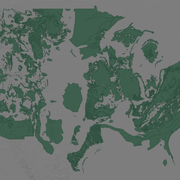Traditional, Renewable, and Emerging
We provide the Nation with publicly available assessments of diverse geologic energy resources.
Energy Waste Science
We supply science about the wastes produced during energy production and ways of repurposing them.
The Energy-Water Nexus
We inform decisions at the intersection of water and energy resource development.
Energy Security and Sustainability
We deliver science needed to plan a secure and sustainable energy economy.
Energy Resources Program
From transportation to electricity, energy resources are critical to keep the Nation running. We provide actionable science and tools to support decision-making related to all aspects of the energy resource lifecycle.
Our work includes assessing domestic and international oil, gas, geothermal and other geologic energy resources.






